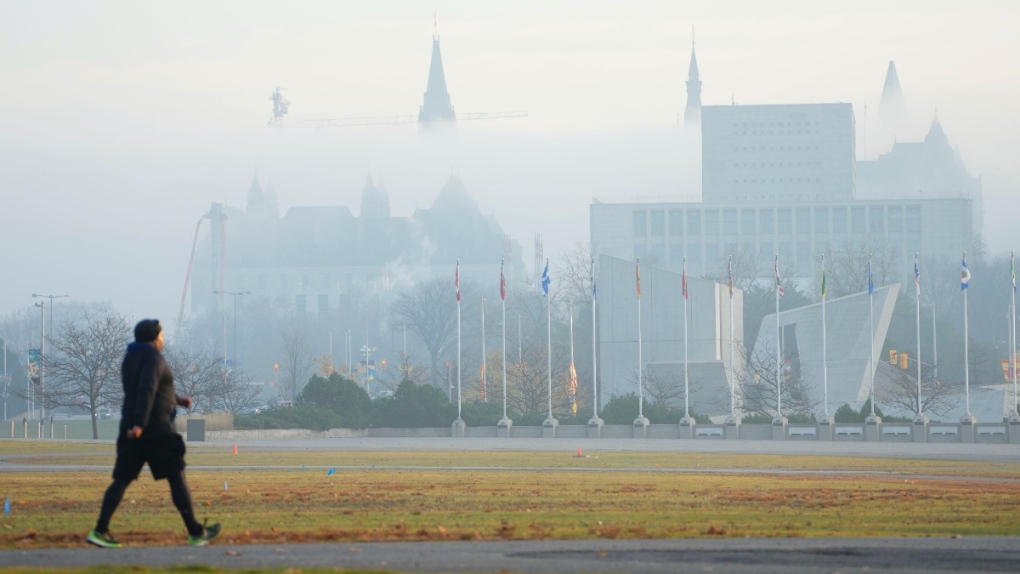
B.C. woman facing steep medical bills, uncertain future after Thailand crash
The family of a Victoria, B.C., woman who was seriously injured in an accident in Thailand is pleading for help as medical bills pile up.
The Supreme Court of Canada has rejected appeals from four men convicted of child sex offences, all of whom cited police entrapment as grounds to dismiss their cases.
Temitope Dare, Erhard Haniffa, Muhammad Jaffer and Cory Ramelson were among more than 100 individuals arrested by the York Regional Police in 2017, as part of a multi-year investigation into child sex trafficking.
The investigation, titled "Project Raphael," began in 2014 and targeted individuals searching online to have sex with children. Undercover police officers posed as sex workers on backpage.com and, after agreeing to provide sexual services, revealed themselves to be underage. The investigation was the first of its kind in Ontario.
In order for an investigation to be considered bona fide, the police must demonstrate they had “reasonable suspicion that criminal activity was occurring in space defined with sufficient precision.”
Ramelson argued he was induced to commit a crime by the police and the “bait and switch” of announcing the age late in the interaction raised “clear entrapment concerns.” Ramelson also argued the website was too broad a space to support reasonable suspicion.
“Some of the most pernicious crimes are the hardest to investigate,” said Justice Andromache Karakatsanis of the Supreme Court of Canada Thursday. “To draw those crimes into the open, the police, acting undercover, sometimes create occasions for people to commit the very crimes they seek to prevent. Done properly, such techniques may cast new light on covert offending, unveiling harms that would otherwise go unpunished.”
Privacy concerns were also acknowledged in the ruling, with consideration of the need to protect privacy interests from state overreach, but balancing that with “the state’s legitimate interest in investigating and prosecuting crime.”
All four men appealed their cases to the Ontario Court of Appeal in 2021, and to the Supreme Court of Canada in spring of 2022. Thursday's judgment to reject the appeals was unanimous by all nine judges.

The family of a Victoria, B.C., woman who was seriously injured in an accident in Thailand is pleading for help as medical bills pile up.
Canadians will learn Tuesday the entirety of the federal Liberal government's new spending plans, and how they intend to pay for them, when Deputy Prime Minister and Finance Minister Chrystia Freeland tables the 2024 federal budget.
The annual inflation rate ticked higher in March compared with February, boosted by higher prices for gasoline, Statistics Canada said Tuesday.
An inmate who escaped from Dorchester Penitentiary in Dorchester, N.B., on Saturday evening has a long history of violent crimes and a history of escaping custody.
Tim Hortons is launching flatbread pizzas nationally in a bid to pick up more afternoon and evening customers.
Ontario Provincial Police are investigating the theft of "several thousand" dollars worth of tropical fish stolen from an Upper Ottawa Valley restaurant last week.
An Ontario woman was shocked to find she’d been charged nearly $7,000 after unknowingly using an unauthorized taxi company while on vacation in January.
NASA confirmed Monday that a mystery object that crashed through the roof of a Florida home last month was a chunk of space junk from equipment discarded at the International Space Station.
Without having seen it, former Bank of Canada governor David Dodge believes that Tuesday's 2024 federal budget from Deputy Prime Minister and Finance Minister Chrystia Freeland is 'likely to be the worst budget' in decades.

Just steps from Parliament Hill is a barber shop that for the last 100 years has catered to everyone from prime ministers to tourists.
A high score on a Foo Fighters pinball machine has Edmonton player Dave Formenti on a high.
A compound used to treat sour gas that's been linked to fertility issues in cattle has been found throughout groundwater in the Prairies, according to a new study.
While many people choose to keep their medical appointments private, four longtime friends decided to undergo vasectomies as a group in B.C.'s Lower Mainland.
A popular highway in Alberta's Banff National Park now has a 'no stopping zone' to help protect two bears.
B.C. resident Robert Conrad spent thousands of hours on Crown land developing an unusual bond with deer.
A Sudbury woman said her husband was bringing the recycling out to the curb Wednesday night when he had to make a 'mad dash' inside after seeing a bear.
A school teacher who took part in the Quebec version of the Survivor reality TV show took time off work to be a contestant is now out of a job.
A young actor from Prince Edward Island is getting the chance to fulfill a childhood dream, playing the precocious and iconic Anne Shirley on stage.
 The Library and Archives, Parliament Hill and the Supreme Court of Canada are shrouded in fog in Ottawa, on Nov 4, 2022. THE CANADIAN PRESS/Sean Kilpatrick (Sean Kilpatrick / THE CANADIAN PRESS)
The Library and Archives, Parliament Hill and the Supreme Court of Canada are shrouded in fog in Ottawa, on Nov 4, 2022. THE CANADIAN PRESS/Sean Kilpatrick (Sean Kilpatrick / THE CANADIAN PRESS)